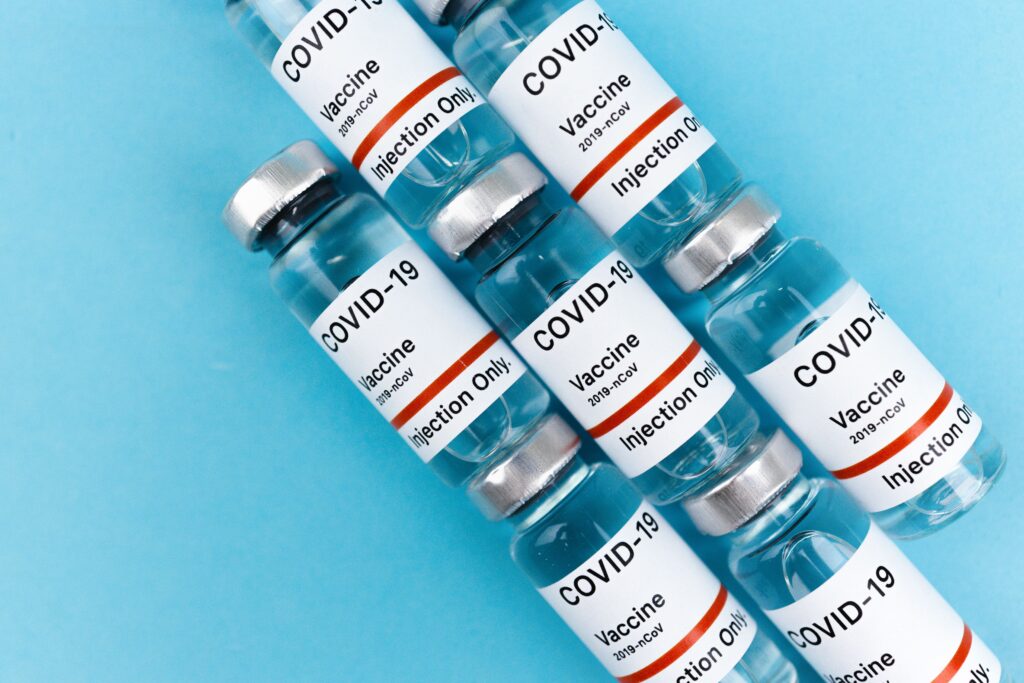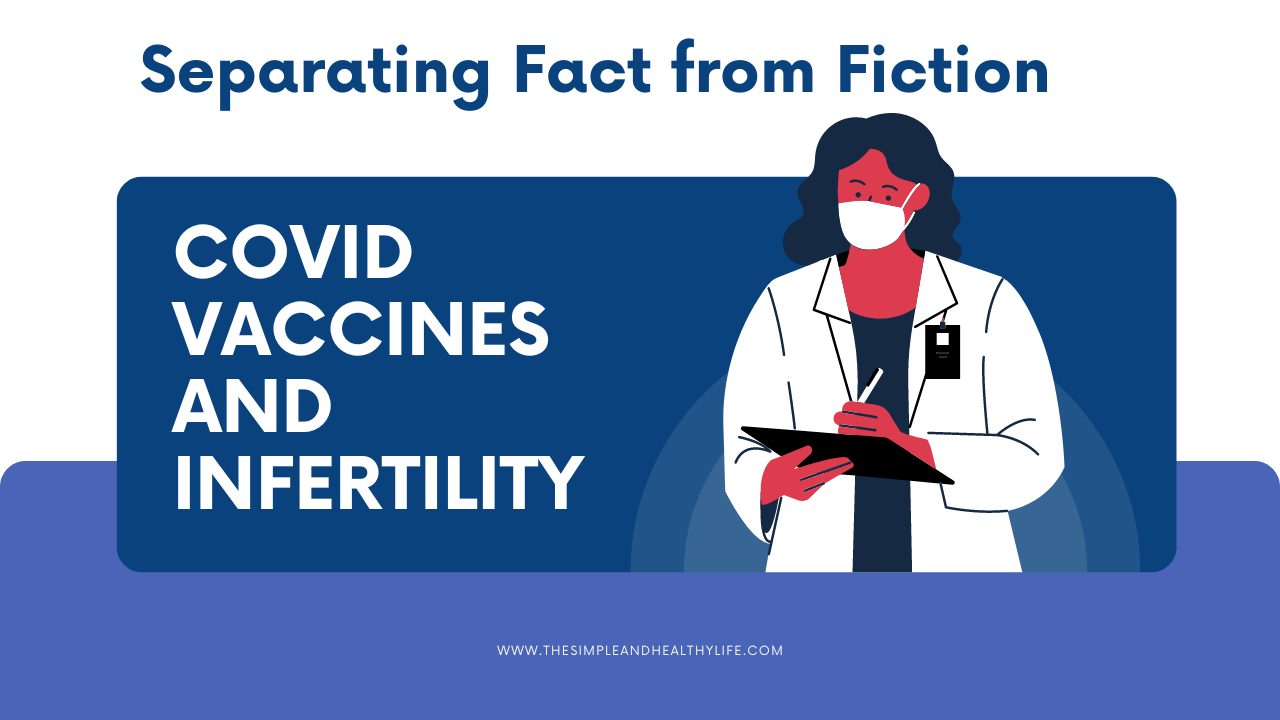Explore the facts about COVID vaccine and infertility. Uncover truths, dispel myths, and understand the science behind the vaccines.
Introduction: Debunking Misinformation
In today’s digital world, wrong information can quickly spread, causing unnecessary worry and confusion. A hot topic that’s been buzzing around is the supposed connection between COVID vaccinations and infertility. It’s crucial to tackle this topic head-on with real facts, expert views, and trustworthy sources to help you make well-informed health choices. So, let’s dive right into this detailed discussion about the COVID vaccine and infertility. We’ll tackle common worries, offer expert advice, and bust any myths along the way.

Covid Vaccine and Infertility: What the Experts Say
Many people are worried about the supposed connection between the COVID vaccine and infertility. But it’s important to know that thorough research and expert views have repeatedly disproved the idea that COVID vaccines can cause infertility.
Top health organizations, like the World Health Organization (WHO) and the Centers for Disease Control and Prevention (CDC), stress that there’s no proof of such a link. Also, the American College of Obstetricians and Gynecologists (ACOG) highlights the safety of COVID vaccines for those trying to have a baby, pregnant women, and breastfeeding mothers.
Dispelling Myths: Understanding the Science
Myth: COVID Vaccines Alter DNA and Affect Fertility
A common myth is that COVID vaccines, like those from Pfizer-BioNTech and Moderna, cause infertility by changing DNA. This is not true. These vaccines work by instructing cells to produce a harmless piece of the virus’s spike protein. This protein triggers the immune system, readying the body to fight off the virus if it comes into contact. The mRNA from the vaccine doesn’t mix with our DNA and doesn’t affect fertility.
Myth: Vaccine Spike Proteins Cause Infertility
Some people worry about the use of spike proteins in COVID vaccines. However, it’s important to understand that the vaccines only use a harmless piece of the spike protein, not the whole thing found in the virus. After a lot of research, scientists have found that the body’s defence response triggered by vaccines doesn’t attack or damage our reproductive organs.
Myth: Vaccines cause placental problems
There’s no scientific proof to back up the idea that COVID vaccines can cause problems with the placenta during pregnancy. Research shows that when pregnant women get the vaccine, their bodies respond in a way that doesn’t harm the placenta. In fact, the protection response from the vaccine can even create antibodies that can help keep newborns safe through breast milk.
Expert Insights: What the Research Shows
Study and clinical trial evidence
Scientists and doctors have run many tests and trials to check if COVID vaccines are safe for people trying to have a baby or who are already pregnant. They published one study in the Journal of the American Medical Association (JAMA). In this study, they watched women who were pregnant and had either gotten the vaccine or not. They found that the vaccine did not increase the chances of having a miscarriage or other problems. So, it’s clear that these vaccines are as safe as other vaccines we use all the time.
The Importance of Immune Response
Experts say that the body’s immune reaction to the COVID vaccines stays around the area where you got the shot and the nearby lymph nodes. This reaction doesn’t affect the organs involved in reproduction. This immune response is a normal part of how your body learns to recognize and fight off viruses in the future.
FAQs
Part 1
Are COVID shots safe for those who are trying to conceive?
People who are trying to have a baby can safely get the COVID vaccines. There’s no scientific proof that these vaccines would make it harder for someone to get pregnant.
Can pregnant women get the COVID vaccine?
Yes, a lot of health groups recommend that women who are pregnant should get the vaccine. The good things about getting vaccinated, like passing on antibodies to the baby, are greater than any risks.
Do the vaccines have an effect on male fertility?
No, the vaccines don’t change a man’s ability to have children. Any ideas that say otherwise don’t have any science to back them up.
Is there a chance of miscarriage following vaccination?
Research shows that getting a COVID vaccine doesn’t make you more likely to have a miscarriage. The number of miscarriages in people who’ve gotten the vaccine is about the same as in the rest of the population.
Can those who are breastfeeding get vaccinated?
Women who are breastfeeding can indeed get their COVID vaccinations without any worries. Interestingly, the vaccination not only protects them but also their infants. This is because the antibodies that the body produces post-vaccination get transferred to the infants through breast milk.
Should those who have had COVID-19 be vaccinated?
Absolutely, it’s recommended that people get vaccinated, even if they’ve already recovered from COVID. While natural immunity might not provide protection for a long time, vaccines do. In fact, vaccines trigger a strong and enduring immune response.
Part 2
Why Infertility is increasing?
Several factors are at play when it comes to the rise in infertility rates. Firstly, people are choosing to have children later in life. Secondly, unhealthy habits and environmental pollutants can also contribute. Additionally, medical conditions such as obesity, PCOS, and STIs can play a significant role. Interestingly, advancements in diagnostic methods and assisted reproductive technologies also have an impact. To tackle this issue, we need a combination of education, lifestyle changes, quality medical care, and ongoing research. So, if you’re worried about this, don’t hesitate to seek advice from a medical professional.

Which infertility treatment is best?
Choosing the ‘best’ infertility treatment really depends on the specific reasons causing infertility for each person or couple. There’s no one-size-fits-all solution because treatments need to be customized based on the unique circumstances and medical histories of those involved. Common treatments for infertility range from lifestyle changes and medication to surgery and assisted reproductive technologies (ART) like in vitro fertilization (IVF). Therefore, it’s crucial to have a conversation with a reproductive professional who can recommend the most suitable treatment for your particular condition and medical needs.
Part 3
What infertility treatments are covered by insurance?
Insurance coverage for infertility treatment can greatly differ. You might find that some insurance plans cover diagnostic tests, medicines, IUI, surgery, or even offer partial IVF coverage. It’s really important to dig deep into your specific plan to understand what’s covered. Don’t forget to ask about pre-authorization and limits. If you find that your coverage isn’t enough, consider exploring financial aid options from clinics or organizations.
How does infertility affect marriage?
Infertility often triggers emotional stress in couples, leading to difficulties in communication and issues with intimacy. Despite these challenges, some couples find that their bond strengthens as they navigate these shared hardships together. Differences may arise between couples regarding treatment options, and the pressure to conceive can be overwhelming. However, seeking professional help and support can play a crucial role in managing these challenges effectively.
Conclusion
Making health-care decisions requires accurate information. The idea that COVID-19 vaccinations cause infertility has been completely debunked by experts and research. Vaccines play a vital role in fighting the pandemic and protecting public health. If you’re trying to conceive, are pregnant, or are breastfeeding, a conversation with a healthcare professional can offer advice tailored to your unique situation. By relying on evidence-based information, we can make informed decisions for ourselves and our communities.
Does Masturbation Cause Hair Fall? Check this out
Which is the Best Intermittent Fasting window for losing belly fat faster? Check this out
*Disclaimer – The information in this article is collected from various resources like online articles, books and magazines. Always consult a healthcare professional or doctor before applying it to your life.
